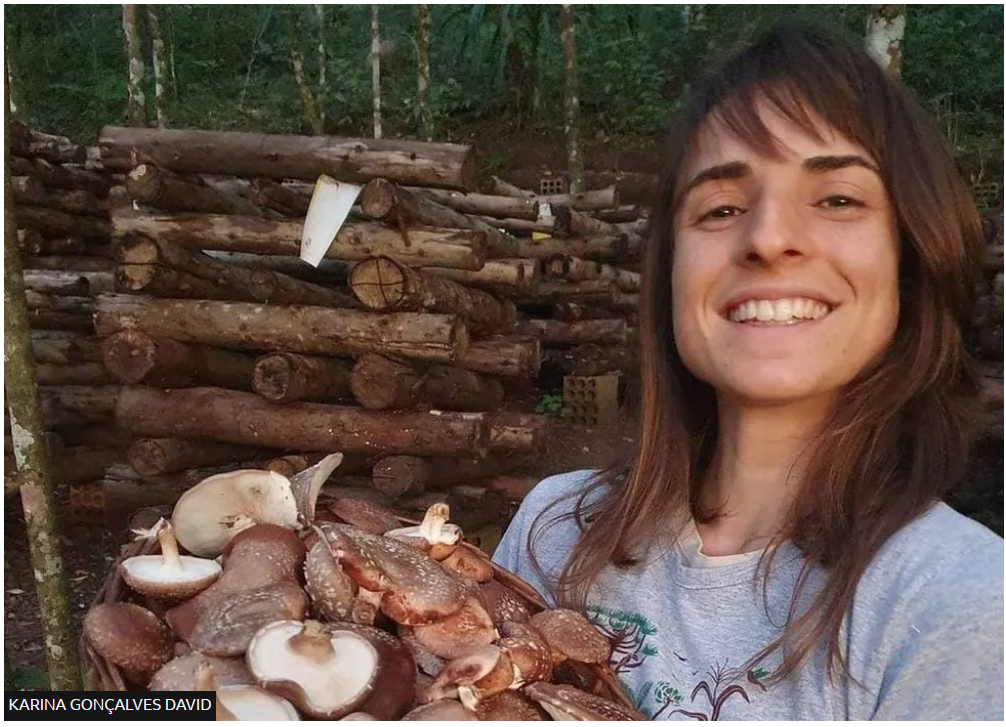Report from days 1 and 2 of COP 28 – Karina David (Brazil)
Hello everyone, as some of you know, I’m attending COP 28 as a farmer, representing women and young people involved in agroecology, as well as the organizations REDE ECOVIDA, INSTITUTO BRASIL ORGÂNICO and INOFO.
This is my first time at the COP.
The COP is a very big event, with many simultaneous events that are impossible to follow completely. Maybe one day I’ll have the opportunity to come with a team to share this work physically and mentally (that would be incredible).
During these first few days, I was more present in the food systems pavilion.
Talking to people who have participated in other COPs and also from my experience here, it’s clear that agriculture is being discussed more as one of the issues of the climate crisis, both as a cause and as a solution.
I’ve heard little about the causes, such as the case of Brazil, which contributes negatively (and a lot) to greenhouse gas emissions through agribusiness. We talk about fossil fuels and their consequences, but I’ve seen few denunciations (here in this pavilion).
With regard to solutions, the theme of agroecology has been highlighted as an indispensable path for food production in the face of the climate crisis. Many experiences from around the world have been presented over these two days and will continue over the next few. The presence of male and female farmers in this pavilion is interesting, but certainly need many more spaces. We need to be heard and we certainly have a lot to contribute with our practical experiences. It is a fact that, unfortunately, the COP is not an event designed for the participation of farmers. The urgency of the transition to agroecology, not only as a food production tool, but also as a social tool, is being highlighted a lot.
I had the honor of presenting on a panel on the second day, sharing our experience as a farmer for almost 10 years at the ProNobis farm, producing tons of food and now focusing on growing shiitake mushrooms on logs, always in agroforestry systems. As well as our experience at the organic market on the public promenade, our agroindustry, the courses and visits to our site. This presentation can be seen in full at link.
The word transition is being bandied about a lot around here, not only in relation to food systems, but also in relation to other terms such as the energy matrix, for example. While it’s encouraging to see that transition is being thought about, it’s important to be careful that it’s not just a “calm down, we’re going to do something, we’re doing it, we need time…”, but with insufficient concrete actions, without government accountability, adequate public policies, etc.
With regard to the term regenerative agriculture, which we in the organic movement have been keeping an eye on for some time now (including the BRAZIL ORGANIC INSTITUTE which has a position letter on the subject), it’s being talked about a lot, much more than agroecology, and it really is very confusing and difficult to distinguish which works are serious and which are not. It’s necessary to do some research on each piece of work that mentions the topic. It’s clear how controversial this topic is, how much greenwash is really involved and how lay people really believe that this is serious agriculture and that it really works for the regeneration of Planet Earth. Very sad!
We also had the declaration of U$400 million for the loss and damage fund (it sounds like a lot, but it’s not much given the need and urgency we have).
We also had the Emirates declaration on agriculture, food systems and climate action.
The declaration recognizes the importance of family farmers, women and young people, but it is a lukewarm agreement, a very poor letter of actions and proposals in the face of the moment and the climate crisis we are experiencing! The letter does not hold agribusiness responsible, nor does it recognize the importance of agroecology and organic farming as a way of transforming food systems. We need much more and we don’t have much time!
Karina David

